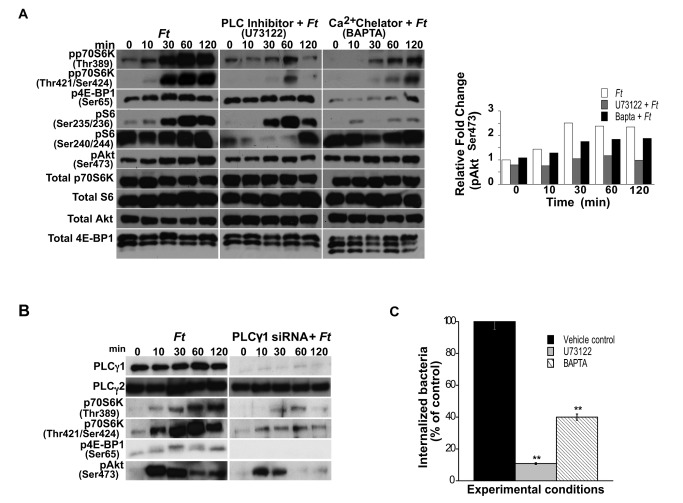Figure 3. Effect of PLCγ1/Ca2+ signaling on mTOR downstream targets and F. tularensis host cell internalization.
Peritoneal macrophages derived from WT mice were pretreated or not with U73122 (3 µM; 1 h) or BAPTA (10 µM; 1 h), infected with F. tularensis LVS (MOI=20) for 0-120 min and lysed. (A) Total p70S6K, S6, 4E-BP1 and Akt, and phosphorylated p70S6K (Thr389 and Thr421/Ser424), 4E-BP1 (Ser65), S6 (Ser235/236 and Ser240/244) and Akt (Ser473) were assessed by Western analysis. Samples analyzed contained equal amount of protein. (A) The band densities determined by densitometry for pAktSer473 were normalized to the total protein levels in a given lysate. Unstimulated control cells (time 0) were incubated with the respective inhibitors for the correspondent pre-incubation period. Prior to the addition of bacteria, cells were not washed including unstimulated controls. Unstimulated cells served as negative controls. (B) RAW cells were transfected with PLCγ1 siRNA (100 nM), and after 5 days, the cells were washed, rested and infected with F. tularensis LVS (MOI=20) for 0-120 min. Total PLCγ1 and PLCγ2, and phosphorylated p70S6K (Thr389 and Thr421/Ser424), 4E-BP1 (Ser65) and Akt (Ser473) were assessed by Western analysis. Samples analyzed contained equal amount of protein. Unstimulated cells served as negative controls. All gels are representative of three to five independent experiments. (C) Peritoneal macrophages derived from WT mice were pre-treated or not with U73122 or BAPTA, as described above, and exposed to freshly harvested F. tularensis LVS (MOI=20) for 90 min to assess bacterial invasion. Values are the mean ± SEM of 5 independent experiments, each done in triplicate; **p < 0.001; *p < 0.05 compared with infected control cells treated with DMSO.

